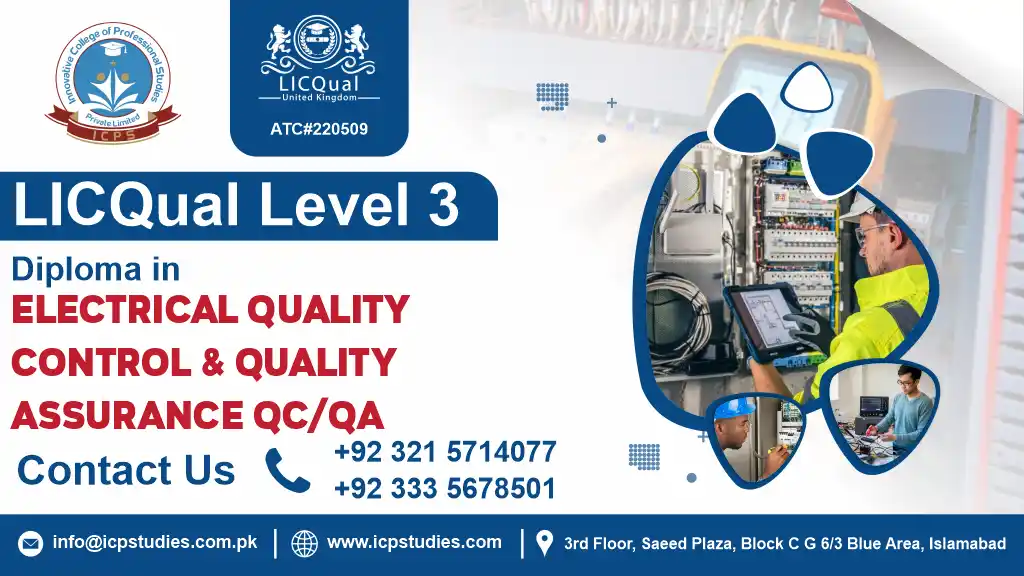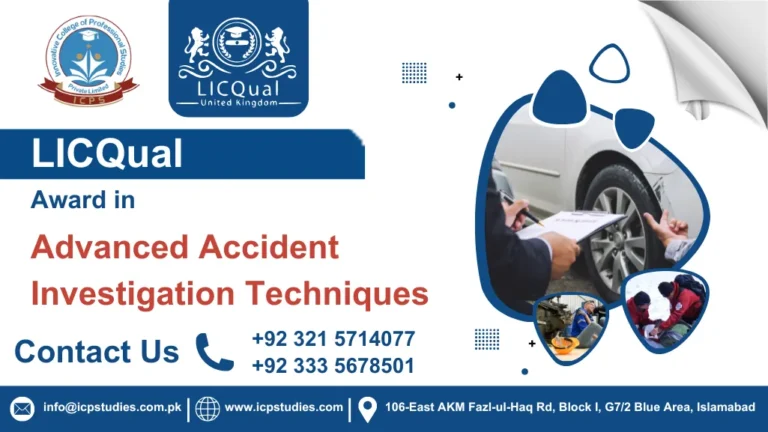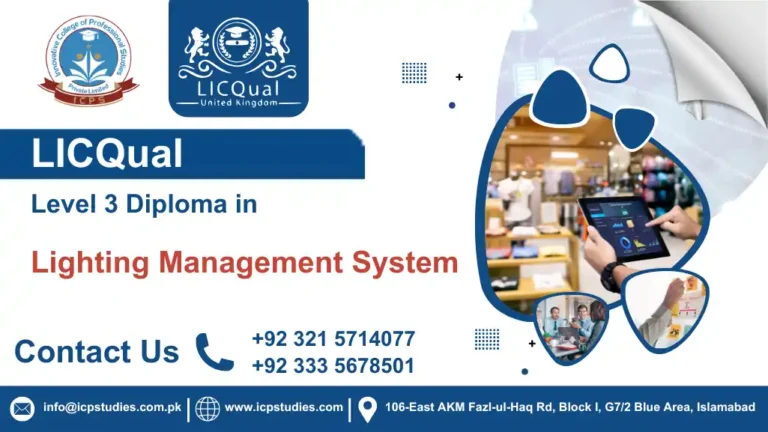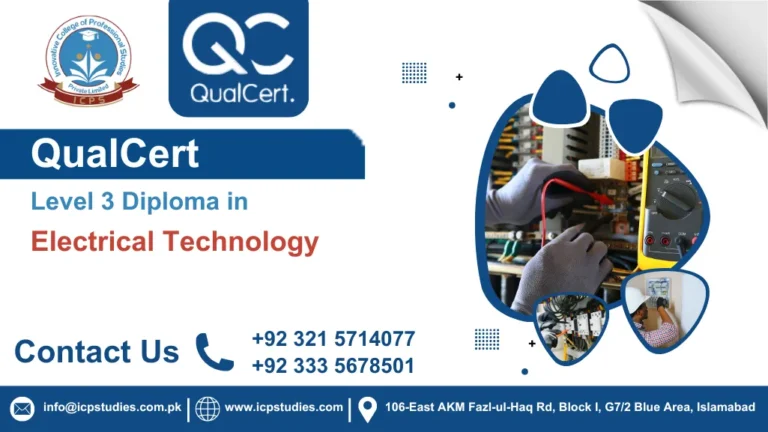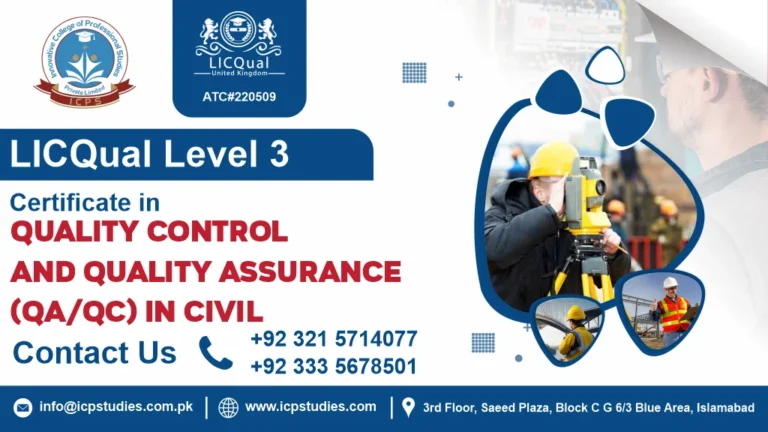The LICQual Level 3 Diploma in Electrical Quality Control and Quality Assurance (QC/QA)is a specialized qualification designed to provide individuals with the essential skills and knowledge required to manage and apply quality control (QC) and quality assurance (QA) systems in electrical engineering projects. This course focuses on the implementation of effective quality management techniques to ensure that electrical installations and systems meet the highest standards of safety, performance, and compliance.
The LICQual Level 3 Diploma in Electrical QC/QA covers a wide range of essential topics in electrical engineering, quality control, and assurance. It combines theoretical knowledge with practical, hands-on skills necessary for managing quality in electrical engineering projects. You will learn how to assess electrical systems, implement quality checks, identify potential risks, and improve the overall quality of electrical installations.
The LICQual Level 3 Diploma in Electrical Quality Control and Quality Assurance (QC/QA) is an excellent opportunity for those looking to enhance their career in the electrical engineering and construction sectors. By gaining expertise in quality management and compliance, you will play a crucial role in ensuring that electrical projects are completed to the highest standards of safety, efficiency, and quality. Whether you are just starting in the field or are looking to specialize, this course will provide you with the necessary skills to succeed.
All About LICQual level 3 Diploma in Electrical Quality Control and Quality Assurance QC QA
Course Overview
The LICQual Level 3 Diploma in Electrical Quality Control and Quality Assurance (QC/QA) is a comprehensive program designed to equip professionals with the essential skills and knowledge required to manage and implement effective quality control and quality assurance systems in electrical engineering projects. This qualification is tailored to meet the growing demand for skilled professionals who can ensure the quality, safety, and compliance of electrical systems and installations in a wide range of industries, including construction, manufacturing, and infrastructure.
As electrical systems form the backbone of modern buildings, facilities, and industrial operations, it is critical to ensure that these systems are built and maintained to the highest standards. This course provides in-depth insights into electrical quality control, testing, inspection, and regulatory compliance, preparing you to contribute to the delivery of reliable and safe electrical systems. You will learn how to apply industry-specific standards, utilize the latest quality assurance tools, and tackle challenges related to non-conformance, risk management, and project quality oversight.
Whether you’re a seasoned electrical technician, engineer, or aspiring professional, this diploma will help you gain practical expertise in quality management processes and make you a valuable asset to any organization involved in electrical engineering projects. The knowledge gained will not only enhance your career prospects but will also ensure that you are well-equipped to oversee electrical projects from a quality assurance perspective, meeting both client and regulatory expectations.
Study Units
- The diploma is structured around six mandatory units, each worth 10 credits, designed to provide a well-rounded knowledge base:
- Unit 1: Introduction to Electrical Quality Control and Assurance Principles
- Unit 2: Tools and Techniques for Electrical QC/QA Inspections
- Unit 3: Understanding Electrical Standards, Regulations, and Compliance
- Unit 4: Analyzing and Troubleshooting Electrical System Deficiencies
- Unit 5: Risk Assessment and Safety Management in Electrical QA/QC
- Unit 6: Documentation, Reporting, and Continuous Improvement in QC/QA
To enroll in the LICQual Level 3 Diploma in Electrical Quality Control and Quality Assurance (QC/QA), applicants should meet the following criteria:
- Educational Background:
- A minimum of GCSE or equivalent in mathematics, English, and science, or a relevant vocational qualification. A background in electrical engineering or a related field is preferred but not mandatory.
- Relevant Work Experience:
- While formal work experience is not a strict requirement, prior experience in electrical engineering, construction, or quality control will be beneficial. Candidates currently working in electrical roles or those with some hands-on exposure to electrical systems will find the course content highly applicable.
- Basic Literacy and Numeracy Skills:
- Applicants should possess basic literacy and numeracy skills to handle technical documentation, safety reports, and quality control records effectively.
- English Language Proficiency:
- As the course content is delivered in English, applicants must be proficient in reading, writing, and understanding technical English to engage with course materials and communicate effectively in professional contexts.
- Interest and Commitment:
- A genuine interest in developing expertise in electrical quality control and assurance, and a willingness to engage with both theoretical knowledge and practical applications in the field of electrical engineering.
Candidates without formal qualifications but who have relevant industry experience may also be considered for enrollment. For more detailed guidance, it’s recommended to contact the course provider directly.
The LICQual Level 3 Diploma in Electrical Quality Control and Quality Assurance (QC/QA) is ideal for professionals seeking to enhance their expertise in the quality management of electrical systems and installations. This course is designed for individuals at various stages of their careers in electrical engineering, construction, and quality management. It is perfect for:
- Electrical Engineers and Technicians:
- Professionals in the electrical engineering field who wish to specialize in quality control and assurance, ensuring that electrical installations meet safety, performance, and compliance standards.
- Quality Control Inspectors:
- Individuals working in quality control roles who want to deepen their knowledge of electrical quality management and improve their skills in testing, inspection, and compliance within electrical projects.
- Construction Project Managers and Site Supervisors:
- Those overseeing electrical installations in construction projects, looking to enhance their understanding of quality management processes, regulatory compliance, and the implementation of quality assurance protocols.
- Health and Safety Professionals:
- Health and safety officers responsible for ensuring that electrical projects adhere to safety regulations and standards, and who wish to gain a deeper understanding of quality assurance practices to ensure compliance on the job site.
- Aspiring Electrical Quality Managers:
- Individuals aiming to move into quality management roles within electrical engineering, construction, or manufacturing industries, and who seek a specialized qualification in electrical QC/QA.
- Career Changers:
- Professionals from other engineering disciplines or technical backgrounds who wish to transition into electrical engineering and quality control, gaining specialized knowledge to work in the electrical sector.
- Students and Graduates:
- Recent graduates in electrical engineering or related fields looking to gain practical, specialized knowledge and improve their career prospects in the electrical quality control and assurance space.
In summary, this course is suitable for anyone looking to develop practical, in-depth knowledge of quality management in electrical engineering and construction, whether you’re just entering the field or looking to enhance your career with advanced skills in QC/QA.
Learning Outcomes
By the end of this diploma, learners will be able to:
Unit 1: Introduction to Electrical Quality Control and Assurance Principles
- Understand the fundamental concepts of quality control (QC) and quality assurance (QA) in electrical systems.
- Recognize the significance of QC/QA in ensuring reliability and safety in electrical installations.
- Identify key principles and objectives of electrical QC/QA processes.
- Differentiate between quality control and quality assurance within the context of electrical systems.
Unit 2: Tools and Techniques for Electrical QC/QA Inspections
- Identify and select the appropriate tools for electrical QC/QA inspections.
- Apply standard techniques for testing and evaluating electrical components and systems.
- Demonstrate proficiency in using electrical testing instruments (e.g., multimeters, insulation testers, power analyzers).
- Identify common defects or irregularities encountered during electrical inspections.
Unit 3: Understanding Electrical Standards, Regulations, and Compliance
- Understand the role of standards and regulations in ensuring electrical safety and performance.
- Identify key national and international electrical standards (e.g., IEC, IEEE, NEC).
- Explain the compliance and certification processes for electrical QA/QC.
- Analyze case studies to assess adherence to electrical standards and regulations.
Unit 4: Analyzing and Troubleshooting Electrical System Deficiencies
- Identify common deficiencies in electrical systems and their root causes.
- Develop skills in diagnosing issues through systematic analysis and testing.
- Recommend effective solutions for addressing identified deficiencies.
- Implement preventive measures to minimize the recurrence of deficiencies.
Unit 5: Risk Assessment and Safety Management in Electrical QA/QC
- Understand the principles of risk assessment in the context of electrical systems.
- Identify potential hazards associated with electrical QA/QC processes.
- Develop strategies to mitigate risks during inspections and testing.
- Foster a culture of safety and compliance in electrical QA/QC operations.
Unit 6: Documentation, Reporting, and Continuous Improvement in QC/QA
- Prepare accurate and detailed documentation for electrical inspections and tests.
- Develop structured, clear QA/QC reports to effectively communicate findings.
- Recognize the importance of feedback loops in driving continuous quality improvement.
- Implement best practices for maintaining and enhancing QC/QA processes.
FAQs about LICQual level 3 Diploma in Civil Quality Control and Quality Assurance QC QA

